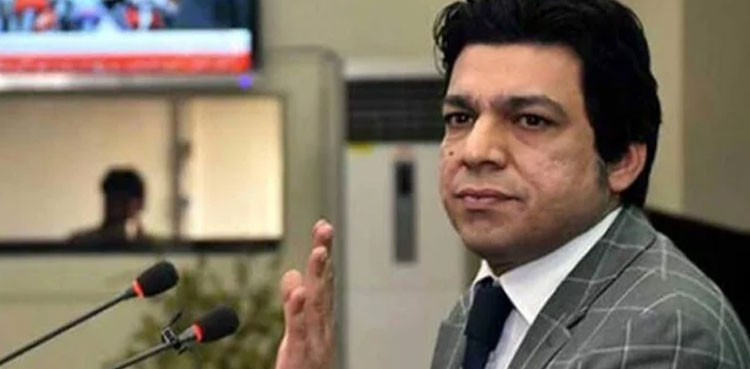ISLAMABAD: The Supreme Court (SC) of Pakistan on Thursday took suo moto notice of a press conference held by Senator Faisal Vawda who demanded evidence of interference in the judiciary, ARY News reported citing sources.
A three-member bench headed by Chief Justice of Pakistan (CJP) Qazi Faez Isa and comprising Justice Irfan Saadat and Justice Naeem Akhtar will hear the suo moto case on Friday, the sources privy to the development added.
During the presser on Wednesday, Senator Faisal Vawda critisised the Islamabad High Court (IHC) judges. “15 days have passed but no details were shared by the IHC judges to support the claims of alleged interference,” the Senator said in response to the IHC judges’ letter, alleging interference in the judicial affairs by the security agencies.
Earlier in the day, the IHC Registrar’s office responded to the letter of Faisal Vawda, seeking the release of communications between Justice Athar Minallah and Justice Babar Sattar concerning the green card controversy.
According to the constitution, holding citizenship or residency of another country is not a barrier to becoming a judge, nor a matter of disqualification, the response said.
Read More: Faisal Vawda demands evidence of interference in judiciary
No information regarding dual citizenship is sought from any lawyer when becoming a judge of the High Court, the registrar’s office and added that Justice Athar Minallah clarified this matter in the proceedings of the case mentioned in the letters of six judges.
It may be noted that Senator Faisal Vawda submitted a request to the registrar of the Islamabad High Court (IHC) demanding the release of communications between SC Justice Athar Minallah and IHC’s Justice Babar Sattar concerning the latter’s green card.
“Accusing someone will not work, the evidence will have to be given in the court,” Fasisal Vawda said while addressing a press conference in Islamabad on Wednesday.
The former federal minister asked the IHC judge Babar Sattar to bring evidence of interference and. He also demanded the Supreme Judicial Council (SJC) to interfere in this matter.
He was of the view that the country should be protected from external and internal conspiracies, adding that process of targeting state institutions should be stopped.


Leave a Comment